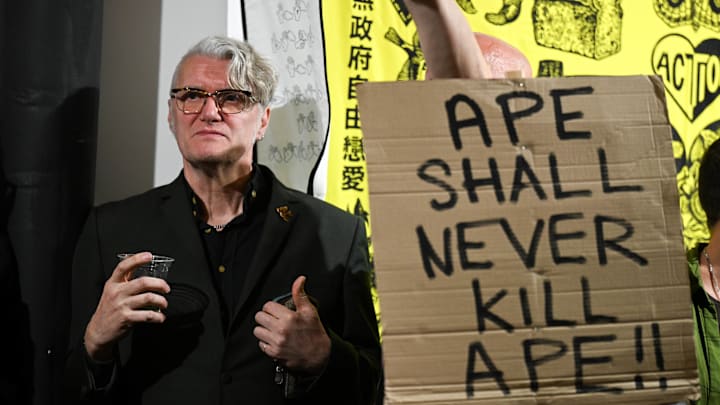Chumbawamba was a British band that gained fame with their 1997 hit single, "Tubthumping," but their roots run much deeper in the punk and anarchist music scenes. Formed in 1982 in Burnley, England, Chumbawamba started as an anarcho-punk band with a DIY ("do it yourself") ethos, creating music that tackled social and political issues, including anti-authoritarianism, social justice, and critiques of capitalism. Still, their sound didn't always scream "anarchy!" to average listeners.
Initially part of the 1980s anarcho-punk scene, alongside bands like Crass, Chumbawamba was known for their politically charged lyrics, outspoken activism, and experimentation with various musical genres. Over the years, they evolved from punk to incorporate elements of folk, dance, electronic, and pop music, leading to a sound that crossed genre boundaries but maintained a rebellious, socially aware spirit.
Of course, Chumbawamba became widely known in the late '90s when they released "Tubthumping" from their album Tubthumper (1997).
The song, with its iconic chant "I get knocked down, but I get up again," became an international hit, reaching the top of the charts in multiple countries and making Chumbawamba a household name. In fact, if I may get personal here, I will note that my mom actually had that album on cassette tape! (That should give an idea of ho big the song actually became). There is also a season 1 episode of sketch comedy show Upright Citizens Brigade where the song is a steady running joke.
The aftermath of "Tubthumping" for Chumbawumba
Ironically, the band intended the song to critique the constant resilience needed in the face of adversity, but it was often interpreted as nothing but a celebratory anthem. Their newfound fame thrust them into the spotlight, which they used to push messages about anti-capitalism, specific social issues, and teh idea that you cannot truly remain neutral on a moving train.
The band famously caused a stir at the 1998 BRIT Awards when drummer Danbert Nobacon dumped a bucket of ice water on Deputy Prime Minister John Prescott to protest the UK government’s policies that led to a two-year industrial dispute involving Liverpool dock workers.
After "Tubthumping," Chumbawamba continued to release music but never reached the same commercial success.
Though they inevitably were accused of selling out during their successful period, they remained relatively committed to their principles, donating much of their earnings to various causes and supporting labor rights, anti-war efforts, and other activist campaigns. People do still remember their hit song, all these years later.
Almost predictably, and much like Jack White of the White Stripes, Chumbawamba took issue with Donald Trump's use of music without permission, sending a "cease and desist" notice after he had used their hit song during his rallies. Member Boff Whalley noted that they took action "when a pre-president Trump thought he could use Tubthumping without [realizing] we would loudly object. Which all makes it all the more obvious that, simply, the right doesn’t have any good songs. That’s why they keep trying to nick ours."
They shifted to a more acoustic, folk-oriented sound in the 2000s, continuing to address social issues through storytelling and satire. In 2012, Chumbawamba disbanded, with the members stating that they felt they had accomplished what they set out to do as a band. Their legacy, however, lives on as a unique blend of music, politics, and activism...even if they are remembered more for writing a catchy chorus than for challenging mainstream expectations and remaining reasonably true to their radical roots.
